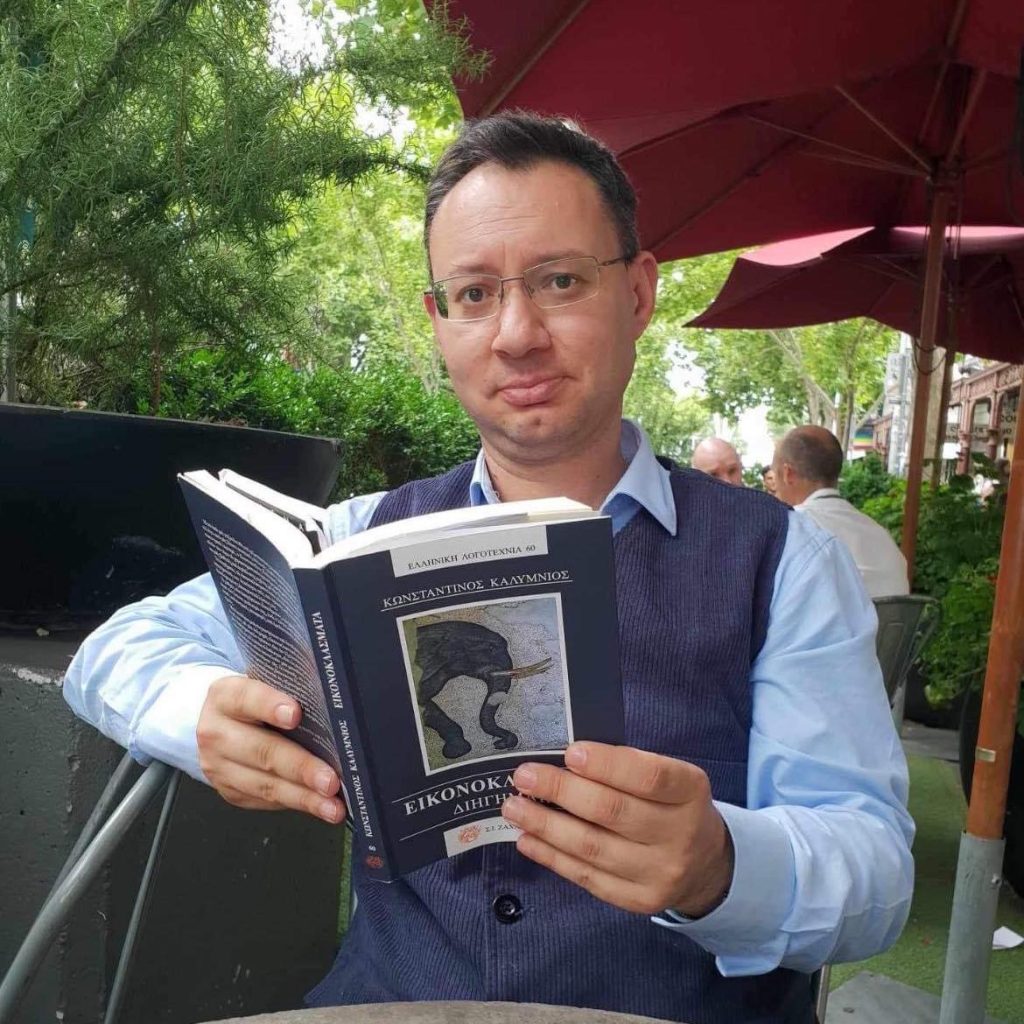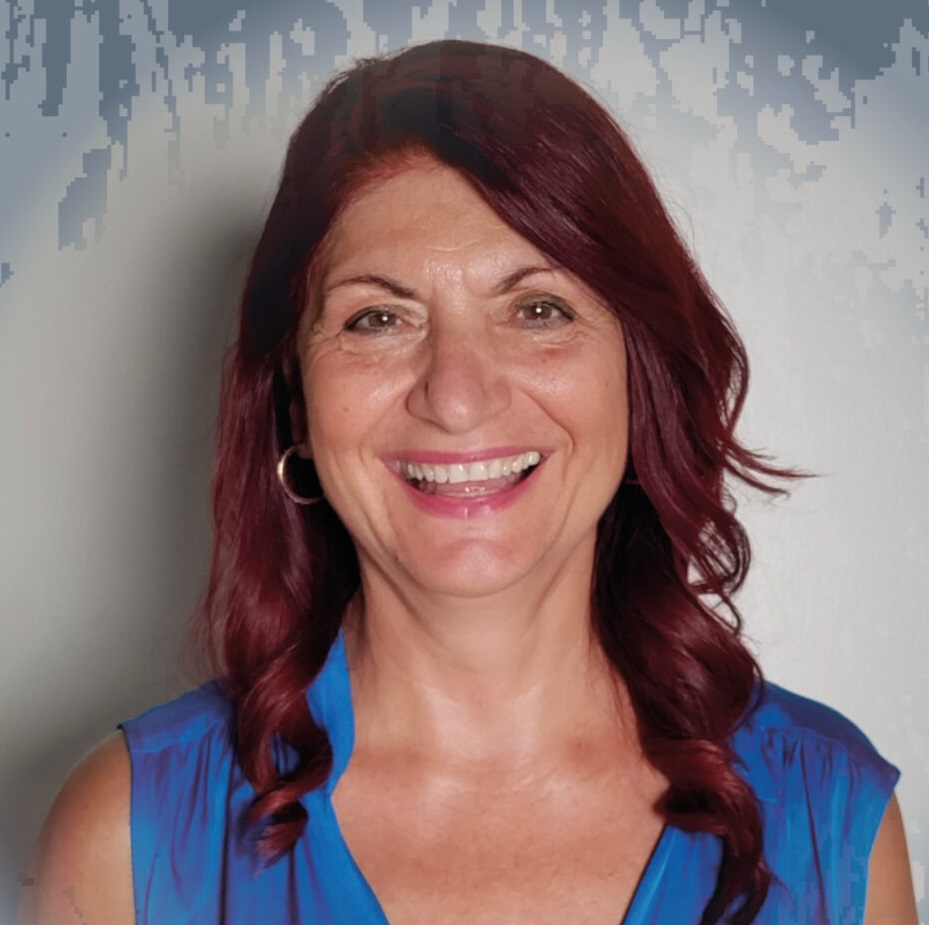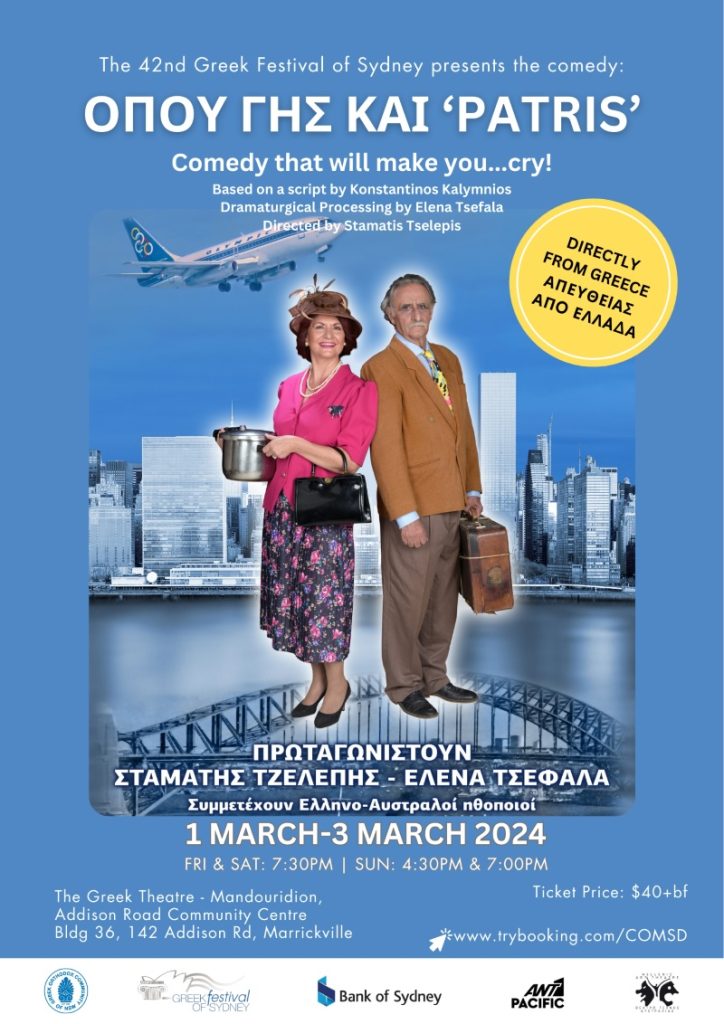By Thodoris Roussos.
Theatrical show ‘Opou GIS kai PATRIS’ is one of the top acts of this year’s 42nd Greek Festival of Sydney set to make the audience laugh and be moved.
Written by the esteemed lawyer and author Konstantinos Kalymnios, the engaging production will be staged at the Greek Theatre – Mandouridion in Marrickville, Sydney, featuring the talented duo Stamatis Tzelepis and Elena Tsefala, for four performances between 1st and 3rd of March 2024.
Shortly before the premiere, The Greek Herald speaks with Mr Kalymnios and leading lady Ms Tsefala.
The inspiration:
We asked Mr Kalymnios to introduce himself to the readers of The Greek Herald and he told us what it was that inspired him for this particular work.
“I am a third generation immigrant. I was born and live in Melbourne where I work as a lawyer. At the same time I am engaged in Greek literature. I have published seven poetry collections, a bilingual children’s book, and recently released in Athens my new collection of short stories,” Mr Kalymnios said.

“Growing up in a small part of Melbourne, I began to see that each region, each suburb where Greeks came to live, had its own peculiar character, something that has to do with the constantly ambivalent broader socio-political identity of the region in question and the place of origin of the Greek immigrants.
“In Essendon, where my grandfather settled, there was a strong Samian element. A few kilometres further, my mother’s fellow villagers settled en masse in Ascot Vale. My experiences, from a linguistic, folkloric and cultural point of view, have been rich. The Greek inhabitants of these areas developed their own way of life, their own mentality and their own particular identity in which their new social reality and the need to maintain the community institution of their village were intertwined.
“Thus, ‘Opou GIS kai PATRIS’ started from the belief of a peculiar way of life, that of the first generation Greek immigrants in Australia, which is gradually being lost over time. They are our protoplasts, who formed our community and created our institutions, constructing a completely separate way of life with their own customs, with their own codes of behaviour, identity references and behaviours.
“All these things are slowly declining: our protagonists are leaving, the once thriving Greek neighbourhoods are being deserted as young people are forced to abandon them for the margins because the demographic realities of the past are changing, and our community is changing.
“So I wanted, through the project, to convey something of that particular sense of sociality and society, to preserve their particular way of speaking with a mixture of dialect and Greek-English, the way their attitudes are expressed, how they themselves deal with the radical changes brought not only by urbanisation, assimilation and aging, as well as how these elements affect their own self-perception before they perish. I think it’s important to have all this presented by people who have lived through it, but are of another transitional generation like ours.”
Shared experiences:
What was it that prompted Ms Tsefala to star in this project?
“The common experiences I have as a child of immigrants, born and raised in Montreal, Canada are similar experiences with those of Australian Greeks. Australia for me and the Greek community in general, is my third homeland. I have spent three years as a seconded teacher at the Melbourne Education Office, I worked in the schools of the Greek Community of Melbourne, staged performances with children 9-12 years old and did my field research for my PhD on ‘Greek Theatre in Australia’,” Ms Tsefala answered.
“During my research, I visited the largest centres of Hellenism in Australia, the cities of Sydney, Adelaide, Perth and Brisbane, where I had the opportunity to meet with people from Greek cultural and educational institutions, to collaborate with them and to collect rich material which, after processing it, I published in a volume of 735 pages titled “One Hundred Years of Greek Theatre in Australia (1910-2010)”. With all the above being said, how could I and the director of the show, Stamatis Tzelepis, not be inspired by the work of Kalymnios and not work in the show?

“We hope this theatrical show will travel to all our expatriates wherever they are, starting with our honoured participation in the Greek Festival of Sydney. We warmly thank the committee of the festival, and personally the Festival Chair, Nia Karteris, for the invitation and hospitality.
“The enthusiastic reception of the performance by the Greek theatrical audience at our premiere, on December 10, 2023, in Athens, justified our choice to dramaturgically edit the play of Kalymnios and to stage it.”
The diaspora shapes Greek culture:
We asked both Mr Kalymnios and Ms Tsefalas for their opinion on whether this production is proof of the richness of Greek culture. Here are their answers…
Mr Kalymnios: I think it is highly symbolic that the play premiered for the first time in Greece, which is after all, the starting point of the whole migration adventure.
I also believe that it is remarkable that renowned Greek actors embraced the play and that they will come here to Australia to play ourselves at a time when the Greek identity narrative is hushed up or reduced to a cliché – the ever-changing status of the expatriate Greek, with all that implies in this term, while the narrative of multiculturalism as enacted by the Australian ruling class is now being challenged as it privileges the most recently arrived ethnic groups.
Ms Tsefalas: Greek culture is shaped through the language, history, art, philosophy, science, tradition, customs and values of the Greek people.
The Greek diaspora, wherever it lives, is an integral element of the Greek culture and the history of Greece, and it forms a culture, initially by maintaining the customs, traditions, popular culture and later by interacting with other cultures. This is also the case with Greeks in Australia.
The creative Konstantinos Kalymnios with his writing pen as ethnographer of the Greek community and historical researcher, hoards the stories and experiences of the first generation of immigrants of the post-war period and records them using the Greek language as he learned it and heard it spoken in the environment where he grew up.
It is noteworthy that Kalymnios, although born and raised in Australia, thinks and expresses himself in the Greek language, reflecting the linguistic idioms of his ancestors originating from Epirus. He narrates with a clear understanding, the history of his country, the feelings of the grandparents in the “new” world, how they tried to succeed, and how they tried to maintain their Hellenism and their religion. It expresses the attachment of this generation to their “new” homeland and their reconciliation with this reality. With a lot of humour and emotion he elaborates on all of the above issues.
The theatrical play ‘Opou GIS kai PATRIS’ is of particular value in enriching the living tradition and history of Greek immigrants as “the voice” and “the soul” of Greece abroad. A performance with this theme always connects the Greeks with their mass migration in the 50s, a collective “traumatic” experience, where children and parents were separated, siblings, families scattered in different parts of the Earth, entire villages uprooted in search of a “better life” for themselves, their children and their grandchildren. Did they make it? That’s what our show negotiates “on stage.”

The dedication to the Greeks of Australia:
When we ask about the script, both answer openly…
Mr Kalymnios: The work consists of four modular stories, moving on the same axis – the relationship of the Greek with Mother Greece and his need to “take root” in his new homeland, the fear of assimilation, the communicative, identity and emotional gap between generations, the status of the eternal stranger, both in Greece and in Australia, even in the family field, loneliness and isolation.
The multiple qualities of the Greek expatriate, either as an immigrant or as an Australian born, the constantly changing relations with the homeland, with the past, with the country where they live and with their fellow citizens may initially alienate or even disturb, but since the destiny of Gods and people is sculpted on the anvil of Fate, what we want to highlight is the greatness of our own people, with all their contradictions.
Ms Tsefalas: The seed of this performance was planted in 2019, when we read the first stories Kalymnios had posted on social media and asked him to send us more. This is how our collaboration began and the vision to bring the show ‘Opou GIS kai PATRIS’ to the country where he was born, Australia. We dedicate this show to the Greeks of Australia.
Our show captures the life, the culture, the language, the values of Greek immigrants, most of them people of the Greek countryside, who continue to preserve, through the narration of true stories and personal experiences, the past. The show is a cloth on which stories, culture and “identity” are woven. The viewer can recognise shared experiences, remember their own stories, connect with their ancestors, their place of origin, our living history, such as the boat trip with the “Patris” with which hundreds of thousands travelled to Australia. That is why we mention it in the title of the play.
Humour, emotion and unsurpassed interpretations:
We asked Mr Kalymnios and MsTsefala about what to expect from Australian expatriates. Their answers were enchanting…
Mr Kalymnios: Emotion, laughter and unforgettable performances by distinguished actors. I have to thank the Greek Orthodox Community of New South Wales (GOCNSW) and the Greek Festival of Sydney for embracing the project from the very first moment, highlighting in this way the particularity of Greek culture as it has developed in Australia for more than a century, always standing firmly on the side of the arts.
Ms Tsefalas: The play ‘Opou GIS kai PATRIS’ is modular – it consists of four stories that move on the same axis – the relationship of the Greek immigrant with Mother Greece, the difficulties he faces away from his homeland, as well as his deep need to “take root” in his new homeland. The show is enriched with songs and music.
Tzelepis and the great anticipation:
Instead of an epilogue, we keep the warm words of Ms Tsefalas for the worthy contributors and protagonists of the project…
“The performance is led by acclaimed actor and director Stamatis Tzelepis, a man who has dedicated his life to serving the theatre for 45 consecutive years,” she said.
“He has played all kinds of theatre alongside almost all of our great actors. He has contributed to Greek culture through his participation in film and television. Today he continues to offer that with the humour, honesty, generosity and dignity that characterises him. He has been awarded many times for his contribution. I consider myself a very lucky person and I feel grateful that Stamatis and I are fellow travellers both in the field of our art and in life.
“It is with great pleasure that we share the stage with beloved actors of the Greek community of Sydney, Yiannis Daviskas, with his many years of experience and contribution in the field of acting under the roof of the Theatre of Arts Australia, and the direction of Stavros Economidis – teacher of theatre.
“Also, Leonidas Ellinas, actor with ties in Cyprus and Australia, also associate of the Theatre of Arts Australia and Natasha Castelloriou, founding member and actress of the Greek Stage Theatre with many years of experience and contribution in the field of acting.
“Many thanks to Stavros Economides and Evelyn Tsavalas for their hospitality at The Hellenic Arts Theatre where we will play Friday, March 1, at 7.30 pm, Saturday, March 2, at 7.30 pm and Sunday, March 3, with two performances at 4.30 pm and 7pm.
“We are waiting for you. We also warmly thank the newspaper The Greek Herald for its hospitality.”

